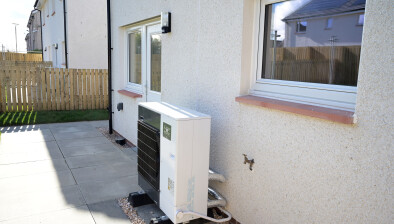Majority of Scots want next Scottish Government to make renewables a priority
 Renewables has come out top of a new poll that asked people in Scotland which energy source the next Scottish Government should prioritise.
Renewables has come out top of a new poll that asked people in Scotland which energy source the next Scottish Government should prioritise.
As Scotland heads to the polls on May 5, the YouGov survey asked more than 1,000 respondents whether the next government should prioritise the continued development of renewables, extend the life of fossil fuel plants, use shale gas or build new nuclear power stations.
70 per cent of those polled want to see more renewable energy such as wind, solar, wave and tidal, and two-thirds agreed that the next government should “continue to take forward policies that tackle greenhouse gas emissions and climate change”.
Only 19 per cent said the next government should prioritise the use of fracking for shale gas while 42 per cent said they should not prioritise building new or extending the life of fossil fuel power stations. 33 per cent support new nuclear power plants being treated as a priority.
The poll, commissioned by Scottish Renewables, is published on the first day of the industry representative’s annual conference in Edinburgh.
Niall Stuart, chief executive of Scottish Renewables, said: “The poll suggests that the people of Scotland continue to be strongly behind the growth of renewable energy, with support for the sector way ahead of any other.
“Just months after the Paris climate change agreement, the poll also shows clear support for Scotland’s next government to prioritise policies to reduce greenhouse gas emissions.”
When asked about their own household energy needs, respondents were given the option of picking from a list of renewable energy devices they would consider installing in or around their own homes. The most popular response was for solar PV panels (39 per cent) followed by solar thermal panels (36 per cent), wind turbines (21 per cent), biomass boilers (20 per cent), heat pumps (20 per cent) and then small-scale hydro turbines (13 per cent).
Of those who indicated they already had a renewable energy device installed, solar panels were most commonly featured along with biomass boilers and heat pumps.
Mr Stuart added: “While only 4 per cent of the sample has small scale renewables at home, there is clear appetite amongst householders to generate their own renewable energy. More than a third of those surveyed saying they would consider solar panels to power or to heat their homes, and 20 per cent interested in installing a wind turbine or biomass boiler.
“We will be continuing our work on the Feed-in Tariff and Renewable Heat Incentive to ensure that smaller scale renewables remain a viable investment for homeowners across Scotland.”
Lang Banks, director of WWF Scotland, said: “When given the choice it’s clear that the public would rather see more renewables than fossil fuels or nuclear power. The message to politicians ahead of May’s elections is clear – continue to prioritise renewables and commit to ensuring Scotland becomes the EU’s first fully renewable electricity nation by 2030.
“Independent research has shown that it is possible for Scotland to have a secure, efficient electricity system, based on almost entirely renewable electricity generation, by 2030 . Not only is it possible, these new figures show it is by far the most popular public vision for the future.”
Patrick Harvie, economy and energy spokesperson for the Scottish Greens also welcomed the poll.
The MSP for Glasgow said: “Scotland can be greener in how it produces and consumes energy and it’s great to see clear public support for such positive ambitions. Scottish Greens have consistently championed the development of the renewables industry and we have led the calls for investment in a skills transition from oil and gas. We have pushed hard for the Scottish Government to open up more community and public ownership of wind, hydro and solar schemes. We are also the only Holyrood party backing a permanent ban on the dangerous distraction of unconventional gas extraction.
“Pressure from Green MSPs also means energy efficient housing has become a national priority; backed with investment this could create thousands of jobs for our communities, while cutting fuel poverty and addressing four years of failed climate change targets.”







